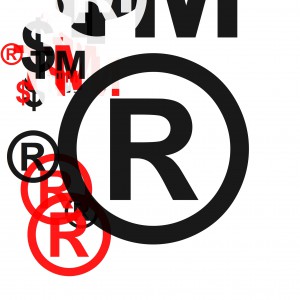May 30, 2018

Before filing a trademark/service mark (the “mark”) application with the United States Patent and Trademark Office (“USPTO”), one should assess the strength of the subject mark and research its availability in the USPTO database. Once it is determined that the mark may be available and registerable, then an application may be filed. If there are no issues with the mark, it will take approximately nine months for the USPTO to register the mark. However, if there are any issues associated with registration, the USPTO will send an “office action” to the applicant notifying it of its preliminary findings. A trademark office action is a notice sent by the USPTO examining attorney who is assigned to the applicant’s mark that there is an issue that may bar registration. Statistically, it is likely that the applicant will receive an office action. According to the USPTO website, this year there have been 312,339 applications and 182,093 have been approved for registration, generating a success rate of 58%.
Why did I receive an office action and how do I respond?
The Most Common Reasons for Trademark Office Actions
Trademark office actions may be sent for mundane technical reasons or for more substantive statutory reasons. Common technical issues include: (1) when the description of the goods and/or services associated with the subject mark are unclear, indefinite, and/or too broad; (2) a particular term associated with a mark needs to be disclaimed because third parties need to be able to use that term to describe their goods and/or services (i.e., Coors Light has to disclaim use of the term “light”); and (3) a specimen of use that the applicant has submitted has a technical or substantive problem. Common substantive issues are refusals based on either a likelihood of confusion with a previously registered mark, or that the mark merely describes some aspect of the associated goods or services.
How to Respond to a Trademark Office Action
Once the applicant has received either a non-final or final trademark office action, the applicant typically has six months to respond. Non-final office actions introduce application issues for the first time and final office actions inform the applicant that the response to the non-final office action was unpersuasive and that a final refusal is recommended. At this point the applicant can either file an appeal, request reconsideration or abandon the mark.
Successful responses to technically-oriented office actions require that the applicant follow the suggestions of the examining attorney. The applicant will be directed to either provide a better description of the goods and services, add a disclaimer to the mark, or improve upon the specimen of use. Responses to substantive refusals demand that more strategy and nuance be employed. Such trademark office actions will state the reason for refusal and then support the refusal with case law. It is important to point out that the refusal is a subjective opinion of the examining attorney and a well-crafted response can overturn a refusal to move to publication.
A likelihood of confusion refusal is typically based on the factors set forth in In re E. I du Pont de Nemours & Co., 177 USPQ 563 (C.C.P.A. 1973). The two most significant du Pont factors are: (1) the similarity of the applicable marks in appearance, meaning, sound and overall commercial impression; and (2) similarity of the goods and/or services of a previously registered mark. The applicant must persuade the examining attorney that a consumer would not find the applicant’s mark and the registered mark(s) cited in the office action as similar or that the goods and/or services are alike. An applicant should submit any evidence that it has and support its argument with substantive case law.
As we have discussed in previous blogs, a trademark application can be refused for being merely descriptive. A mark is merely descriptive if it describes an ingredient, quality, characteristic, function, feature, purpose or use of the applicant’s goods and/or services. The applicant may overturn a refusal for being descriptive if it can convince the examining attorney that the mark is actually suggestive or arbitrary. If the applicant cannot convince the examining attorney, the examining attorney will give the applicant the opportunity to have the mark placed on the supplemental register (a secondary registry which offers the owner rights, but not all of the rights afforded to owners of marks that are on the principal register).
Additional Tips
Do not hesitate to call or email the examining attorney assigned to your application. The examining attorney can provide insights on how to fix technical issues and she/he may even provide assistance on how to argue against a refusal. Additionally, be certain to address all of the issues contained in the office action. If the applicant does not address an issue, it will be deemed conceded by the USPTO. Finally, remember that it is always wise to consult with a trademark attorney that can construct a persuasive argument that will make it more likely for a mark to move forward to publication. If you are interested in learning more about this topic, or if you have received a trademark office action, please e-mail us at info@kleinmoynihan.com, or call us at (212) 246-0900.
The material contained herein is provided for informational purposes only and is not legal advice, nor is it a substitute for obtaining legal advice from an attorney. Each situation is unique, and you should not act or rely on any information contained herein without seeking the advice of an experienced attorney.
Attorney Advertising
Related Blog Posts:



